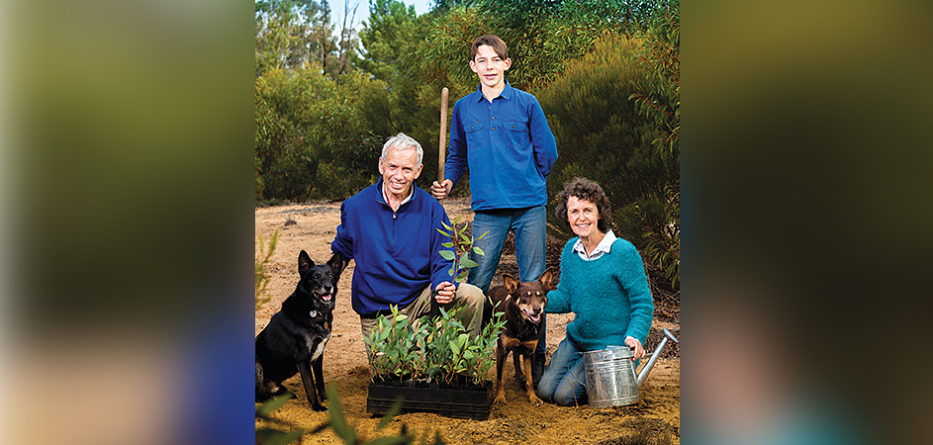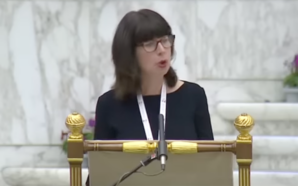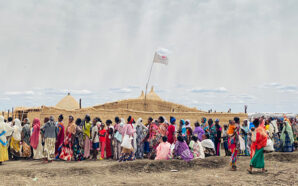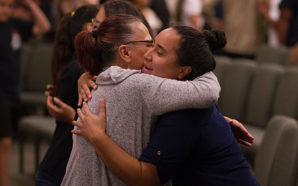Inspired by Laudato Si’ and Pope Francis’ call for ecological conversion, farmer Peter Henry and his family from Tailem Bend, South Australia, have transformed the bare hills of their Murray Mallee property into an oasis where native grasses, trees and birdlife flourish.
A member of the Archdiocese of Adelaide’s new Council for Integral Ecology, Mr Henry is now urging other Catholics to take action and change their ecological practices.
As a farmer who has embraced regenerative farming practices in recent years, he said the release of the Pope’s encyclical in 2015 had “reinforced” his faith.
“When Laudato Si’ was published we remember reading it, relishing it,” Mr Henry said.
“We found it fascinating reading as we, like many others, had already been acutely aware of our damaged environments. It was also sobering to realise that we were part of these destructive processes, either through ignorance, materialism, over-consumption, wastefulness, and the misguided understanding of the fragility of our environments.”
Purchasing their farm near Tailem Bend in 2008 was a big move for the family. Mr Henry, who was raised on a dairy farm in Victoria, spent 20 years teaching agriculture and science in Catholic secondary schools before becoming a VET educator, while wife Ann, an Occupational therapist, was brought up in the city. Son Luke, who is now in Year 10 at St Ignatius’ College, has grown up witnessing and participating in the wondrous transformation of the sandy landscape over the past decade.
“After we took over we set about attempting to repair some of the degraded areas on the property, including the bare sand hills that looked very much like a desert landscape, not a plant to be seen,” Mr Henry said.
“In other places, the drifting sand completely covered the fences and rabbits were causing considerable damage.”
Gradually, with the help of government grants, they began fencing off areas and planting trees. Today, more than 50 hectares of native trees and shrubs provide a more pleasing vista, and there has been a return of birdlife to the property.
To support his planting program Mr Henry has established a nursery in Murray Bridge where he propagates seedlings for their own use and for sale, often to farmers for revegetation projects on their properties.
While the tree planting changed the outlook of the property, the Henrys knew if the farm was to be viable there needed to be a major change in their approach.
The high cost of inputs – diesel, herbicide, fertiliser and seed – meant they were running at a considerable loss. After researching alternative farming methods and attending workshops and information sessions, they embarked on sustainable/regenerative agriculture practices.
“It was a leap of faith,” Mr Henry admitted. “We began to realise we are just the caretakers of the land and that it would eventually heal itself”.
“We stopped cultivating the soil, using herbicide and fertiliser. We used substantially less diesel as we were no longer planting crops.
“The idea was to allow the native grasses to recover as they have the ability to cope better with the harsh environments of Australia. We were assured by the regenerative agriculture experts that despite the apparent lack of evidence of native grasses on rural properties, the seeds of these grasses would be there waiting for the right conditions to grow.”
Over the next three years, they let Mother Nature do her thing and anxiously waited. They were still running sheep but monitoring their grazing more carefully. Meanwhile, the weeds flourished and Ann and Peter wondered if they had made a mistake.
“There was a lot of praying,” Mr Henry said. “Then during one very hot summer where temperatures soared above 45 degrees for days on end, we noticed a small miracle taking place.
“In one paddock that had been totally scorched by the sun a small patch of native grass was spotted – green and vibrant in amongst a brown, dead landscape. The regenerative process had begun!”
Now more than 10 species of native grasses cover their paddocks, providing a welcome feed source for their livestock all year around. The land is healthier and while they run less sheep, they are in better condition.
“Our input costs are considerably lower than before and what we produce is of better quality”, Ann said.
“Now we cover our costs. Farming is more rewarding, more fulfilling and less stressful. We can now enjoy the natural beauty that surrounds us here.”
In line with the teachings of Laudato Si’, Ann has also been proactive and created a PowerPoint presentation and booklet to outline simple ways people can make better choices when shopping, by opting for sustainable and fair trade products.
“So often we are looking at the end result of what we have to do, but not the process. For example, we might rush our weekly shop without consideration of where the waste will eventually end up.
“Everyone has an enormous power to help bring about change. One person can make a difference,” she said.
Laudato Si’ Week celebrations will be held around the world from May 16 to 24.
By Lindy McNamara. Reproduced with permission from The Southern Cross, the news publication of the Catholic Archdiocese of Adelaide.








